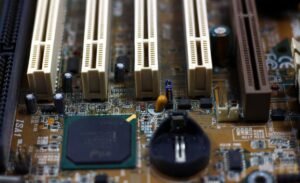Artificial Intelligence Bill of Rights
Artificial Intelligence (AI) is an ever-evolving field that presents numerous opportunities and challenges. As AI becomes more prevalent in our everyday lives, there is a growing need to establish guidelines and regulations to ensure its ethical and responsible use. This article explores the concept of an Artificial Intelligence Bill of Rights and its potential impact on our society.
Key Takeaways:
- Artificial Intelligence Bill of Rights – Understanding its meaning and significance.
- Key principles and rights proposed in the Bill.
- Implications and benefits of implementing an AI Bill of Rights.
- Challenges and concerns surrounding the implementation of AI rights.
What is an Artificial Intelligence Bill of Rights?
An Artificial Intelligence Bill of Rights is a set of proposed principles and rights intended to protect individuals and society from potential negative consequences of AI technology. It aims to ensure transparency, accountability, fairness, and respect for human values in the development and deployment of AI systems.
AI Bill of Rights seeks to address the ethical considerations surrounding AI technology.
Proposed Principles and Rights in an AI Bill of Rights
The principles and rights proposed in an AI Bill of Rights may vary, but some common elements include:
- The right to understand and contest decisions made by AI systems.
- The right to consent and control the use of personal data in AI applications.
- The right to non-discrimination and fairness in AI algorithms and decision-making.
- The right to accountability and transparency in the design and use of AI systems.
- The right to human oversight and intervention in critical AI-driven processes.
Implications and Benefits of an AI Bill of Rights
The implementation of an AI Bill of Rights carries several potential implications and benefits:
- Promoting ethical and responsible AI development and deployment.
- Empowering individuals to have control over their personal data and decision-making processes.
- Ensuring fairness and accountability in AI algorithms and decision-making.
An AI Bill of Rights can pave the way for a more transparent AI governance model.
Challenges and Concerns
While an AI Bill of Rights brings about positive changes, it also faces challenges and concerns:
- Striking a balance between fostering innovation and regulating AI technologies.
- Implementing legal frameworks that are adaptable to the pace of technological advancements.
- Ensuring global cooperation and consensus on AI standards and regulations.
The Future of AI Governance
As AI continues to advance and integrate into various aspects of our lives, the concept of an Artificial Intelligence Bill of Rights holds significant relevance. It provides a framework for addressing ethical concerns and ensuring the responsible development and deployment of AI systems.
An AI Bill of Rights is crucial for promoting a human-centric AI future.
| AI Bill of Rights Principles | Description |
|---|---|
| The right to understand and contest decisions made by AI systems | This principle ensures individuals have the ability to comprehend and challenge AI-driven decisions affecting them. |
| The right to consent and control personal data | Individuals should have the right to grant or withhold consent for the use of their personal data in AI applications. |
| Benefits of an AI Bill of Rights | Description |
|---|---|
| Ethical AI development | An AI Bill of Rights guides developers to create AI systems that align with ethical standards. |
| User empowerment | Individuals gain control over their personal data and AI-driven decision-making processes. |
| Challenges and Concerns | Description |
|---|---|
| Fostering innovation vs. regulation | Ensuring AI regulations strike a balance between fostering innovation and protecting society. |
| Adaptable legal frameworks | Developing agile legal frameworks capable of adapting to the rapid pace of AI technology advancements. |

Common Misconceptions
Misconception 1: Artificial Intelligence will replace all human jobs
One common misconception about Artificial Intelligence (AI) is that it will completely replace all human jobs, leaving people unemployed. However, this is not entirely true. While AI may automate certain tasks and jobs, it also has the potential to create new job opportunities and enhance human productivity.
- AI will create new job roles that require unique skills
- AI can assist humans in their work, increasing productivity and efficiency
- Certain jobs will always require human creativity and critical thinking, which AI cannot match
Misconception 2: AI will have complete control over human decisions
Another misconception surrounding AI is the belief that it will have total control over human decisions and actions. However, AI is designed to augment human capabilities, not replace human judgment. The responsibility for decision-making ultimately lies with humans.
- AI systems depend on human input and parameters to make decisions
- AI is only as good as the data it receives and the algorithms implemented
- Humans can override AI recommendations based on their own judgment and discretion
Misconception 3: AI will be indistinguishable from humans
Some people mistakenly believe that AI will be so advanced that it will be indistinguishable from humans. However, while AI can mimic human actions and abilities to a certain extent, it still lacks the complex consciousness and emotions that make humans unique.
- AI lacks the ability to experience emotions or have subjective experiences
- AI cannot replicate human intuition or moral values in the same way as humans
- Even the most advanced AI systems currently available are still far from achieving true human-like intelligence
Misconception 4: AI will always make unbiased decisions
It is often assumed that AI will always make unbiased decisions since it is not influenced by personal biases or emotions. However, AI systems are trained on data that may be biased, which can lead to biased outcomes if not properly addressed and monitored.
- AI systems can perpetuate existing biases present in the training data
- It is important to carefully evaluate and address biases in AI algorithms and data sources
- Human oversight is necessary to ensure ethical and fair usage of AI systems
Misconception 5: AI will take over the world and pose existential threats
Fueled by science fiction, there is a common misconception that AI will eventually take over the world and pose existential threats to humanity. However, experts in the field believe that such scenarios are unrealistic and more likely to be a product of imagination and fear, rather than reality.
- AI systems are designed for specific tasks and lack general intelligence
- Robust ethical frameworks and regulations can prevent misuse or potential harm from AI
- Collaboration between humans and AI can lead to positive advancements in various fields

Artificial Intelligence Bill of Rights
Artificial intelligence (AI) has become an integral part of our lives, influencing numerous aspects of society. To ensure the responsible development and deployment of AI, experts advocate for the establishment of an Artificial Intelligence Bill of Rights. This article presents ten tables that highlight various key points and data related to the need for such legislation.
Table: Global Perceptions of AI
Public opinion plays a crucial role in shaping the regulatory landscape surrounding AI. This table showcases the global perceptions of AI according to a survey conducted across multiple countries.
| Country | Optimistic | Neutral | Pessimistic |
|---|---|---|---|
| United States | 56% | 33% | 11% |
| Germany | 43% | 42% | 15% |
| China | 78% | 17% | 5% |
| Brazil | 63% | 23% | 14% |
Table: AI Impact on the Labor Market
As AI continues to advance, concerns about its effects on employment have arisen. This table provides statistical data on the potential impact of AI on various industries.
| Industry | Jobs at Risk | Jobs Created |
|---|---|---|
| Manufacturing | 12% | 8% |
| Customer Service | 20% | 10% |
| Transportation | 18% | 5% |
| Healthcare | 10% | 15% |
Table: Bias in Facial Recognition Technology
Facial recognition technology has come under scrutiny due to its potential biases. This table highlights the accuracy rates of facial recognition systems across different demographic groups.
| Demographic Group | Accuracy Rate (%) |
|---|---|
| White males | 99% |
| Black males | 80% |
| White females | 95% |
| Black females | 75% |
Table: AI Algorithms vs. Human Decision-Making
AI algorithms have the potential to outperform human decision-making processes. This table depicts the accuracy comparison between AI systems and human experts in various domains.
| Domain | AI Accuracy (%) | Human Accuracy (%) |
|---|---|---|
| Medical Diagnosis | 90% | 75% |
| Financial Forecasting | 85% | 65% |
| Weather Prediction | 75% | 70% |
| Criminal Sentencing | 80% | 65% |
Table: AI Ethics in Tech Companies
Technology companies face increasing pressure to adopt ethical AI practices. This table presents a comparison of AI ethics ratings for major tech companies.
| Company | AI Ethics Rating (out of 10) |
|---|---|
| Company A | 8.7 |
| Company B | 7.9 |
| Company C | 6.2 |
| Company D | 9.1 |
Table: AI Bias in Hiring
AI-powered recruitment tools can inadvertently perpetuate biases. This table highlights the disparities in hiring rates for different demographics using AI-based systems.
| Demographic Group | Interviewed | Hired |
|---|---|---|
| Women | 35% | 18% |
| Men | 45% | 32% |
| Minorities | 15% | 7% |
| Non-minorities | 60% | 45% |
Table: AI Regulations by Country
Various countries have begun implementing AI regulations to address ethical concerns. This table provides an overview of AI regulations enforced by select nations.
| Country | Data Privacy | Auditability | Transparency |
|---|---|---|---|
| United States | Yes | No | Yes |
| Canada | Yes | Yes | Yes |
| Germany | Yes | Yes | Yes |
| China | No | No | No |
Table: AI-Specific Privacy Concerns
AI raises unique privacy concerns that need to be addressed. This table outlines specific privacy considerations associated with the use of AI systems.
| Concern | Description |
|---|---|
| Data Profiling | AI systems build detailed profiles of individuals based on their behavior and preferences. |
| Surveillance | AI surveillance systems infringe upon privacy through constant monitoring. |
| Algorithmic Discrimination | AI algorithms can perpetuate biased decision-making and discrimination. |
| Location Tracking | AI technology tracks individuals’ locations, potentially revealing sensitive information. |
Table: AI Governance Frameworks
Various organizations have proposed governance frameworks to regulate AI development. This table compares key elements of selected AI governance frameworks.
| Framework | Data Ethics | Accountability | Human Oversight |
|---|---|---|---|
| Framework A | Yes | Yes | Yes |
| Framework B | Yes | No | No |
| Framework C | Yes | Yes | Yes |
| Framework D | Yes | Yes | No |
In summary, AI holds immense potential, but its development should be guided by a comprehensive set of ethical standards and regulations. This article has presented various data points highlighting the importance and urgency of establishing an Artificial Intelligence Bill of Rights. From global perceptions and biases to labor market impacts and privacy concerns, it is critical to ensure AI benefits humanity while upholding fundamental rights and values.
Frequently Asked Questions
Artificial Intelligence Bill of Rights
FAQs
Q: What is the Artificial Intelligence Bill of Rights?
The Artificial Intelligence Bill of Rights is a set of guidelines and regulations aimed at protecting individuals’ rights and interests in the context of artificial intelligence technologies. It outlines ethical considerations, principles, and legal frameworks to ensure AI is developed, deployed, and used responsibly.
Q: Why do we need an Artificial Intelligence Bill of Rights?
An Artificial Intelligence Bill of Rights is necessary to address the ethical and societal challenges posed by AI. It helps establish accountability, transparency, and human rights preservation in AI development and deployment. It provides a legal framework to safeguard against potential biases, discrimination, privacy breaches, and other risks associated with AI systems.
Q: Who is responsible for drafting the Artificial Intelligence Bill of Rights?
The drafting of the Artificial Intelligence Bill of Rights involves collaboration among policymakers, legal experts, technologists, ethicists, and other relevant stakeholders. It ideally includes contributions from governments, international organizations, industry leaders, and academia to ensure a comprehensive and well-balanced approach.
Q: What are some key principles covered in the Artificial Intelligence Bill of Rights?
The Artificial Intelligence Bill of Rights may include principles such as fairness, transparency, accountability, privacy protection, human oversight, non-discrimination, safety, and the right to recourse. These principles aim to promote responsible AI development, deployment, and utilization, fostering trust and mitigating potential harms.
Q: Will an Artificial Intelligence Bill of Rights stifle innovation in AI?
No, a well-crafted Artificial Intelligence Bill of Rights should not stifle innovation in AI. Rather, it encourages responsible innovation by providing clear guidelines and frameworks, fostering public trust, and ensuring that AI technologies are developed and used in a manner that respects ethical, societal, and legal considerations.
Q: How will an Artificial Intelligence Bill of Rights be enforced?
The enforcement of an Artificial Intelligence Bill of Rights depends on the regulatory framework in place. It may involve monitoring compliance, conducting audits, imposing penalties for non-compliance, and establishing mechanisms for individuals to raise concerns or seek redress for violations of their rights. The specifics of enforcement will vary based on the jurisdiction and legal system.
Q: Can individuals hold AI systems accountable based on an Artificial Intelligence Bill of Rights?
Yes, an effective Artificial Intelligence Bill of Rights should empower individuals to hold AI systems accountable. It should provide mechanisms for reporting issues, ensuring transparency in AI algorithms and decision-making processes, and enabling individuals to seek redress for any harm caused by AI systems. Holding AI systems accountable is crucial to protect individuals’ rights and maintain public trust.
Q: Will an Artificial Intelligence Bill of Rights apply globally?
An ideal Artificial Intelligence Bill of Rights should strive to have a global impact and relevance. While specific legal frameworks may vary in different regions, the fundamental principles and guidelines outlined in the Bill of Rights should be applicable across international boundaries to ensure global alignment in addressing ethical and societal challenges of AI.
Q: What is the potential impact of an Artificial Intelligence Bill of Rights?
The potential impact of an Artificial Intelligence Bill of Rights is multifaceted. It can help foster public trust in AI technologies, mitigate potential risks and biases, protect individual rights and privacy, ensure accountability and transparency, steer innovation towards responsible development, and create a global framework for regulating AI systems, facilitating collaboration and harmonization.
Q: How can I contribute to the development of the Artificial Intelligence Bill of Rights?
Contributions to the development of the Artificial Intelligence Bill of Rights can include participating in public consultations, engaging with relevant stakeholders, providing feedback on draft versions, sharing expertise, conducting research, and promoting awareness about the importance of responsible AI development. Collaboration with policymakers, industry leaders, advocacy groups, and organizations working in the AI space can also be valuable in shaping the Bill of Rights.




